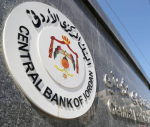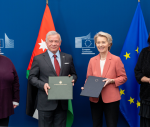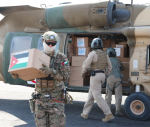You are here
Palestinians in bad need for a unifying strategy
Jul 03,2019 - Last updated at Jul 03,2019
More than a week after the end of the controversial economic workshop in Bahrain, dubbed “Peace to Prosperity”, Palestinians in the Palestinian territories were confused and concerned.
During a visit to Ramallah and Jerusalem, I was repeatedly asked if the US “ultimate deal” was going to be implemented. Palestinians were also worried that the Palestinian government and leadership have no plans or vision for the future. The economic bite has been very difficult, especially since it has affected a large number of civil servants. Some 160,000 Palestinian public employees received 60 per cent of their salaries, and the impact was felt in various economic fields.
The stalemate between the Palestinian government and the Israeli authorities over the issue of tax remittances was the talk of the town in many circles, with some saying that they are hoping French President Emmanuel Macron or someone at his level would intervene and help resolve the conflict that arose when the Israeli Knesset passed a law that ordered the government to cut an amount from the tax and customs remittances that are collected by Israel on behalf of the Palestinians in an amount equal to that of what Palestinians pay prisoners and the families of martyrs. It appears that Israel is also interested in finding a solution and is said to have offered a number of them, including the possibility of Israel paying the prisoners’ canteen allotment or possibly reducing the 3 per cent it collects as an administrative fee according to the Paris economic agreement.
What is most worrisome is the sense of absence of any serious middle to long-term vision. Palestinians want to strengthen local governments in case the Palestinian Authority falters. Others want to work on creating a bonding station in Hebron and Jenin that would receive products earmarked for the Palestinian market and, therefore, collect Palestinians’ own customs without having to be left at the mercy of the Israelis.
The split between Fateh and Hamas is also damaging. Different experts say that Palestinian President Mahmoud Abbas is showing extreme flexibility in trying to reach reconciliation, and that he has told the Egyptians he is willing to sign on the dotted line to any timetable they recommend for the implementation of a deal to end the longest split in modern Palestinian history. The unity that was shown by all Palestinians in opposition to the US-led efforts has given many the feeling that both sides are not far from each other politically, while it is clear that certain groups from both sides are benefitting from the status quo.
But perhaps the most depressing issue is the absence of a clear strategy for Palestinian liberation. Almost all the leaders and experts I have met concede that there is no chance to go back to the armed resistance. This leaves Palestinian leaders with one of two options: the negotiations track and the mass civil resistance track. The negotiations track, which President Abbas has championed for years, has brought no progress, with more and more people calling for discarding this option until there is a change in the balance of forces and a genuine opportunity for a breakthrough. This leaves the non-violent popular struggle track, but this also has many obstacles represented mainly by the absence of a serious willingness by the leadership to give up on the current perks they have and make the sacrifices that are necessary for the success of a non-violent effort.
Elections could be the mechanism towards honing in on a strategy and choosing the people that are willing to lead it. Everyone agrees that elections are long overdue and the issue has become a hot topic of conversation, but like all other issues, there is no clear path yet for elections.
Most agree that elections without an agreement is next to impossible. Both Fateh and Hamas blame each other for the absence of an agreement on it. Hamas was insistent that legislative, presidential and Palestine National Council elections should take place at the same time. At first Ramallah was insistent, as per the decision of the Palestinian high court of having only legislative elections, but it appears now that they agree on both legislative and presidential elections.
President Abbas appears ready to agree on elections but is waiting for a clear sign from Hamas. Hamas says it agrees, and that if Abbas is serious, he will issue a presidential decree and announce a specific election day. President Abbas seems to have agreed to issue a decree for legislative elections to be followed four months later by a presidential election. Some argue that he wanted to do this in case Hamas won again and that this would give him some wiggle room. Others say he is now willing to have the two elections simultaneously.
Palestine is arguably going through one of its worst periods. The absence of a vision and the lack of any serious progress on the political/negotiations track require a more introspective direction. A serious and honest debate is badly-needed within the Palestinians in order to come out with an agreed to vision for the future. Such a discussion must avoid polemics and one-upmanship, and be based on a realistic vision that can be implemented and a political will to carry such a vision to its natural end.













